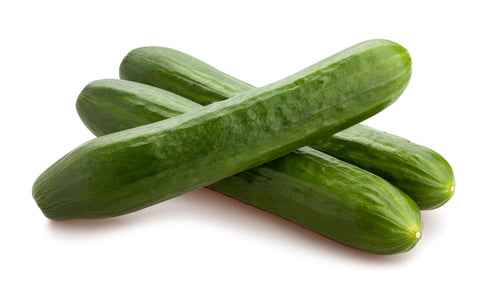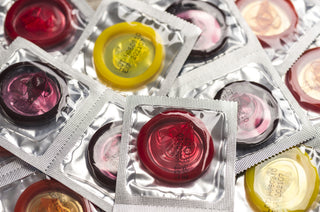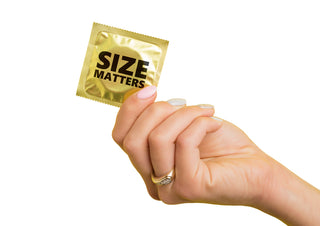Lockdown affected people’s sex lives in a variety of different ways – the first wave of COVID-19 had a considerable impact on the amount of sex some people had, with young people and those who were not living with a steady partner the most affected.
Now that social distancing restrictions have somewhat eased, some of us are able to enjoy living more sexual lives again, but if you're the type to feel a little embarrassed when buying condoms or sex toys in a shop, here at Condoms.uk, we always deliver with discreet delivery. We stock a large range of condoms, lubes, and accessories from the biggest, best and most trusted brands in the sexual health industry, so you’re bound to find what you are looking for.
However, sex isn’t always smooth sailing and can entail some physical risks… a few wrong moves beneath the sheets could leave you injured or in pain, switching from moans of ecstasy to screams of agony in an instant. With this in mind, we collaborated with two doctors – Dr Giuseppe Aragona (GP and online doctor for OnlinePrescriptionDoctor) and Dr Deborah Lee (from Dr Fox Online Pharmacy) – to give some expert insight into the topic.
Read on to find out more…
Injuries and accidents

There are many different types of sex-related accidents and subsequent injuries. From bruises to breaks, fractures and dislocations, abrasions and strains, ‘getting it on’ has the potential to cause you some damage.
Dr Lee shared that “in my experience, the most common reasons people come to the sexual health clinic regarding sex-related accidents are due to lost condoms, which can slip off, and may be found high up in the vagina. They can easily be removed in the clinic once a vaginal speculum has been inserted, with a pair of sponge forceps. Other objects can also get lost in the vagina – for example, not long ago, I removed a metal showerhead washer from a patient’s vagina when I went to fit an intrauterine device (IUD)… the patient was unaware it was up there. Lost tampons or forgotten cervical caps are not uncommon – which often comes to light when a woman attends the clinic as she has developed a smelly vaginal discharge. Fractured penises are very rare and would be dealt with by the Urology team”.
When it comes to the demographics that are most likely to suffer a sex-related accident or injury, Dr Aragona said “I suppose it would be those who are exploring with sex toys and objects in the wrong way”, as well as those into BDSM (due to sexual acts such as choking, bondage, gagging, and whipping), and couples involved in group sex (“not knowing the person they are being intimate with, and a lack of trust with using sex objects”). “Elderly couples may also end up causing injury”.
Sex positions

According to Dr Aragona, the most ‘dangerous’ sex positions include girl on top and reverse cowgirl – “both of these sex positions pose risk to the man. Penile fractions can happen if the woman moves in the wrong way or uses erratic motions”. Dr Lee added that three of the most dangerous sex positions are the bodybuilder, London Bridge and the triple lindy, “as these are difficult to achieve, and carry the highest risk of a fractured penis”.
While Dr Lee shared that “no sex positions are 100% safe”, Dr Aragona cited that “doggy, missionary, spooning, and oral sex” are the least 'dangerous’ positions.
Household items

Dr Lee explained that “it's a perfectly sensible idea to use household products during sexual activity – people have been doing this for centuries. However, it's important to know which products to avoid, and follow some simple rules, to avoid any unpleasant consequences”.
In the UK, 2009-2019, 3,500 objects were surgically removed from people’s rectums, at a cost to the NHS of £340,000 per year – “the trend is on the increase with nearly twice as many procedures in 2019 as in 2009. Not only is this hugely embarrassing, but it's also a complete misuse of NHS resources”.
Should be safe
Dr Aragona said that “for the interest of your gynaecological health, I would advise only using sex toys intimately, however that being said there are a few house hold objects, that when used safely can work”.
The vagina is a delicate part of the female body, with a finely tuned bacterial ecosystem. It can be easily traumatised, or a local infection or allergy could develop. The rectum and anus are not designed for sexual intercourse, and insertion of objects into the anal canal risk causing an anal tear, a local infection, or an allergic reaction. As such, Dr Lee advises that you should:
- Always choose something with a smooth surface and rounded edges that cannot cause any damage
- Also, use an object you could cover with a male condom that will not weaken latex or cause a condom to split
- Avoid wooden objects, as these are porous, hard to keep clean, and could splinter
- Go for something you will be able to remove after sex – what goes in, must come out That’s why a solid object (such as a carrot) is a good option, but a spreadable food (like peanut butter) is not
With this advice and tips in mind, the doctors’ suggestions (ordered A-Z) include:
-
Aloe vera
- “This can be used in the vagina as a cream, in menopausal women, to treat vaginal dryness associated with menopausal oestrogen deficiency, with good results”
-
Broom end
- “Sterilise before using on you or your partner. As long as the broom has a smooth exterior it should be ok to use without a condom”
-
Candle
- “As long as the candle is rounded and smooth. I would advise using a condom, so the wax is not exposed to your genitalia”
- Certain food:
-
Fruit and vegetables, such as aubergines, banana, carrot, and cucumber
- “These can all be used but cover them with a condom to protect the vaginal wall from coming into direct contact with the vegetable outer surface, as these are covered with bacteria and fungi, and also reduces the risk of allergic reactions”
-
Honey
- “This is known to have antibacterial and antifungal effects and has been used with success to treat acute candidiasis. It increases the number of healthy lactobacilli in the vagina”
-
Plant-based oils
- “Almond and olive oil can be used in the vagina, however, these weaken latex condoms. However, there is no data on the safety of using coconut oil on the genital area or inside the vagina so this should be avoided for the time being”
-
Plain yoghurt
- “Plain unsweetened natural yoghurt can be inserted into the vagina as it has similar pH to that of the vagina – around 4.4. This can help soothe the symptoms from an acute attack of vulvovaginal candidiasis (thrush), for example”
-
Curling iron
- “Sterilize your curling iron, and of course, make sure it is turned off”
-
Electric toothbrush
- “Use the handle end in the vagina - or gently on the clitoris, as a vibrator. Don’t try this with the bristles as it is too abrasive and will cause sores”
-
Glue stick
- “Sterilise the glue stick before use, also be careful if you plan to insert it as it could have slightly sharp edges”
-
Hairbrush
- “Choose a hairbrush with a rounded, not a pointed, handle, made of plastic, not wood, and insert this into the vagina”
-
Ice cubes
- “Ice can increase sexual pleasure, but always cover the ice cubes with a condom, otherwise, they can stick to the vaginal walls and cause painful ice burns”
-
Jewellery
- “Some women find it pleasurable to sit on a string of large beads, such as pearls, and rock back and forwards. This is not dangerous so long as the stones are smooth and can be properly cleaned after use”
-
Mobile phone
- “The smartphone designers obviously invented vibration mode for a reason! If you do want to stimulate your clitoris with your vibrating phone, cover the phone in cling film as phones are typically absolutely covered in bacteria, and you need to be able to use the phone afterwards”
-
Pillow
- “Placing a pillow under your hips can make vaginal and anal sex more comfortable and pleasurable – plus, some say it can even increase the possibility of reaching the G-spot.”
-
Rolling pin
- “Ensure the rolling pin is clean”
-
Sex toys and accessories
- “Lubricants, lingerie, sex toys, comfy pillows, soft music – there is no end to the accessories you might want for great sex. Just make sure these are from reputable suppliers, safe, clean, and hygienic”
-
Socks
- “Did you know that keeping your socks on in bed helps to warm your lower regions and makes you feel more relaxed”
-
Showerhead
- “If you run the shower on a warm (not hot) setting and let this stream onto your clitoris, this can be very stimulating”
-
Spatula
- “Kitchen implements like spatulas and spoons can be rubbed onto the genital area, but do not use anything with blades or sharp edges. Always sanitise these scrupulously if you put them back in the cutlery drawer”
-
Turkey baster
- “Ensure turkey baster is clean”
-
Video equipment
- “Making a sex tape can be erotic, but always ask permission first, watch it together, and offer to delete it immediately”
-
Washing machine
- “Having sex on top of a vibrating washing machine is said to be very stimulating. However, take care not to fall off and cause an injury”
Not safe
The vagina has a very delicate ecosystem, with an acidic pH of around 4-4.5. Anything that makes the pH more alkaline – shower gel, bubble bath, douches, perfumes, or unusual food products – can raise the vaginal pH and predispose you to bacterial vaginosis – a common condition associated with an increase in aberrant bacteria. This is the vaginal discharge that commonly has a fishy smell. To prevent BV, women need to keep the pH of their vagina in the healthy acidic range.
With this in mind, the doctors suggest that you avoid using the following (ordered A-Z):
-
Bicycle pump
- “I would suggest you forget the bike pump and use a specially designed ‘pussy pump’ instead. This consists of a suction cup you place over the vulva, including the clitoris, and pump so this draws blood into the area and increase sensitivity”
- Certain food:
-
Butter
- “Butter should not be used in the vagina. It needs to be kept cold and when inserted into the vagina will melt, cannot be removed properly and will go off very quickly”
-
Chilli
- “Chili should never be used on the genitalia or inserted into the vagina or rectum. The capsaicin content, which gives the chilli its hot taste, can be very irritating to the thin, sensitive tissues in the genital area. No spicy foods should be inserted into the vagina or the anus”
-
Chocolate
- “Chocolate has a high sugar content and can disrupt the vaginal pH, so should not be put into the vagina”
-
Frozen foods
- “Frozen foods can stick to the wall of the vagina and cause ice burns. If you want to do this, always use a condom”
-
Hot dogs
- “I wouldn’t suggest putting meat inside the vagina, especially if it’s hot, or has any sauces on it. You can't clean a hot dog properly before inserting it, it will be covered in cooking fat, and is likely to cause vaginal irritation or infection”
-
Mint
- “Mint is also unlikely to help with sexual pleasure as it numbs the genital skin and decreases sensations”
-
Whipped cream
- “Whipped cream will biodegrade and cannot be easily wiped away/removed, so should not be put into the vagina”
-
Dog toys
- “Some dog toys and sex toys look identical. However, don’t’ use your dog’s toy as a sex toy as it will be covered in animal germs and extremely unhealthy. Sex toys are made of safe-silicone whereas you don’t know what a dog toy is made of”. Also “the bacteria on the toy from your dog could leave you open to infection”
-
House plants
- “I really would not advise putting any type of plant inside the vagina or the rectum. Plants contain ingredients you could be allergic to. They have not been tried and tested for this purpose. Moreover, they are covered in bacteria, and this is likely to upset the delicate pH of the vagina”
-
Knife handle
- “A knife handle may be smooth, but one wrong movement and you could cause yourself an accident so it's best to avoid”
-
Lava lamp
- “Some people find just looking at the changing wax shapes and colours of a lava lamp leads to arousal. Technically the lamp could be inserted into the vagina and used for genital stimulation. However, I would caution against this because the lamp bottle is made of glass and could also become very hot”
-
Light bulb
- “It’s really a crazy idea to put any glass objects including light bulbs or bottles in or near the vagina or the rectum. The glass can easily shatter leaving your vagina or rectum full of broken glass, with a high risk of serious haemorrhage. I really do not recommend you do this”
-
Magazine
- “A rolled-up magazine is not a good idea as you could cause yourself or your partner paper cut injury on your genitalia”
-
Perfume
- “Don't be tempted to spray perfume on your genital area or up into the vagina. Perfumes contain chemicals, colouring agents and preservatives, all of which can upset the vaginal ecosystem and pH, and cause vulval and vaginal irritation and allergy”
-
Soap
- “Soap should not be used as a sex toy as it could cause burning to your genitals, which will leave you in a lot of pain”
-
Tea tree oil
- “While tea tree oil can be used with caution, as a very dilute solution, to treat vaginal infections, you should never use neat tea tree oil on the genital area or inside the vagina or anus, as this is likely to burn and sting and be extremely unpleasant”
-
Wooden objects (unless they are a smooth wood)
- “Using wooden household objects could leave you open to splinters; however, this depends on the object and the type of wood. If it is a smooth sort of wood, it may be ok, but anything with a rough edge should not be used”
-
Toilet brush
- “If you want to do this, use a brand new toilet brush, not a used one (!), and only use the handle end, not the bristle end which will be too abrasive for the soft genital tissues”
-
Vaseline, Baby oil and other oil-based lubricants
- “These are not advised because they can damage latex condoms, causing them to burst”
-
Vacuum
- “Vacuums are not safe to use due to the suction power, these may seem like they could be fun, but this could quickly turn into a painful accident”
According to Dr Lee, “rarely sex with household objects can be fatal or near-fatal but a shattered light bulb in the vagina or anus can cause catastrophic bleeding. Electrical appliances used can give off fatal electric shocks”. Dr Lee continued that “good sexual health starts at home by making good sexual health choices. It’s not worth risking your health and wellbeing, and your future fertility, because you agreed to something stupid. You can have still have great, adventurous sex - but do it sensibly”.
Dr Aragona added that “using these household products in the wrong way could cause harm to your own or your partner's genitalia. You may think that nothing bad will happen and that you will be safe, but in the heat of the moment you could end up slipping or being a bit too rough and it could cause internal injury. Furthermore, you may not realise how bad the injury is, especially internal bleeding. If sharp or precarious objects are being inserted into the vagina or anus, then this is likely to cause some injury. Infection is also a risk if you use something that has not been sterilised and holds bacteria. These bacteria being transferred directly into the vagina or rectum could cause irritation or infection. Only use objects which are safe and use a condom with them to be extra safe”.
Hygiene and safety precautions

When it comes to other hygienic and safety precautions that people need to be aware of, Dr Aragona stated that, as well as injury, there is “also potential infections from dirty objects. Be sure to sterilise all objects before you use, or use with a condom. You may also want to use lube when inserting large objects to ensure you do not cut any internal tissue”.
Dr Lee added that “we are all too well aware of the need for good hygiene in the current throes of the Covid pandemic. Good hygiene is also paramount in terms of putting objects inside the vagina or the rectum. Bacteria such as salmonella, shigella, E. Coli, and campylobacter can all be spread via the use of sex toys, as can hepatitis A, B and C, chlamydia, and gonorrhoea”. Her advice is to always wash your sex toys after each and every use, before you use them again:
- Wash any sex toys in warm soapy water for at least 20 seconds, as you would when washing your hands.
- Silicone toys without electrical parts can be boiled for 1-3 minutes, rinsed, and left to dry
- You can purchase special cleaners for sex toys but be careful to choose products that do not contain alcohol or parabens
- Dry the object with a paper towel and throw this away
- Keep the sex toy in a clean bag, ready for further use
- Do not put sex toys in the dishwasher! For a start, anything with electrical components will be ruined, plus the dishwasher leaves a residue that is not meant to end up inside the vagina
Dr Lee concluded that “if you throw caution to the wind and don’t follow advice, you risk traumatising the genital area, damaging your genital tissues, developing a local infection, a local allergic reaction, and damaging latex condoms which can lead to an STI and/or unplanned pregnancy. A local infection could always develop into a more serious infection – giving rise to pelvic inflammatory disease (PID), which can affect your future fertility, and cause septicaemia”.
---
*Expert advice correct as of January 2022
With thanks to our expert sources for their insight for this article:
- Dr Giuseppe Aragona, GP and online doctor for OnlinePrescriptionDoctor
- Dr Deborah Lee, Dr Fox Online Pharmacy





